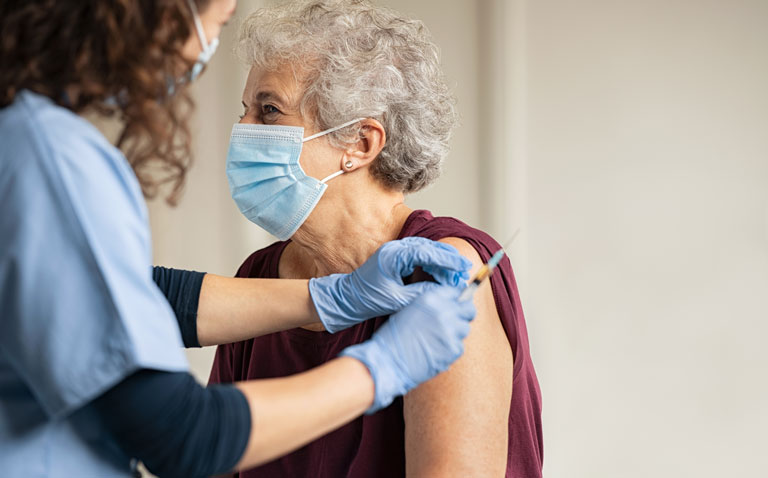Increasing real-world from the UK shows that COVID-19 vaccines have a major effect on the risk of hospitalisation and death.
On 8 December 2020, the UK became the first country to implement a COVID-19 vaccination programme with the Pfizer-BioNTech vaccine, BNT162b2, and this was later extended, following approval, to include the AstraZeneca vaccine, ChAdOx1. However, after commencing the programme, concerns were expressed that the currently available vaccines might not be as effective against an emergent UK COVID-19 variant (labelled VOC 202012/01) with an S gene target failure (SGTF) and which had become the dominant circulating strain circulating in the UK. Public Health England has now released a preliminary analysis of the early effect of the vaccination programme. The study was designed to estimate the effectiveness of vaccination with both BNT162b2 and ChAdOx1, in all individuals aged 70 years and older, against laboratory confirmed COVID-19 infections as well as the incidence of hospitalisation and death. The authors employed a test negative case control design, to estimate the odds ratio for testing positive for COVID-19 in both vaccinated and unvaccinated individuals. With such a design, vaccination status is compared in those testing positive or negative, using data derived from an individuals’ vaccination history held within the national vaccination register. The team set the main study outcomes as confirmed symptomatic COVID-19 infections, hospitalisations (within 14 days of a positive test) and COVID-19-related deaths, 21 days after a positive test.
Findings
A total of 156,930 PCR test results were linked to vaccination history, of which 44,590 (28.4%) were positive. When comparing the effect of vaccination after 4 January 2021, for the BNT162b2 vaccine, the odds ratio reached 0.39, 28 days after vaccination, equivalent to a vaccine effectiveness of 61%. With the ChAdOx1 vaccine, a similar effectiveness was found 28 days (60%) after vaccination though this increased further after 35 days to an effectiveness of 73%. In an analysis of individuals with SGTF, there appeared to be little difference in vaccine effectiveness.
Moreover, vaccination with both BNT162b2 and ChAdOx1 reduced the risk of hospitalisation by 43% and 37%, respectively. In terms of mortality, among those given the BNT162b2 vaccine, there were a total of 750 positive cases, more than 14 days after vaccination, of whom 51 died within 21 days. Hence, the risk of death was reduced by 51% (data for the ChAdOx1 vaccine were not available). Commenting on these results, the authors noted how even if an individual becomes infected with COVID-19, vaccination significantly reduced the risk of both hospitalisation and death, therefore providing evidence for the real-world effectiveness of the vaccines.
Citation
Bernal JL et al. Early effectiveness of COVID-19 vaccination with BNT162b2 mRNA vaccine and ChAdOx1 adenovirus vector vaccine on symptomatic disease, hospitalisations and mortality in older adults in the UK: a test negative case control study. 2021 https://khub.net/documents/135939561/430986542/Early+effectiveness+of+COVID+vaccines.pdf/ffd7161c-b255-8e88-c2dc-88979fc2cc1b?t=1614617945615










